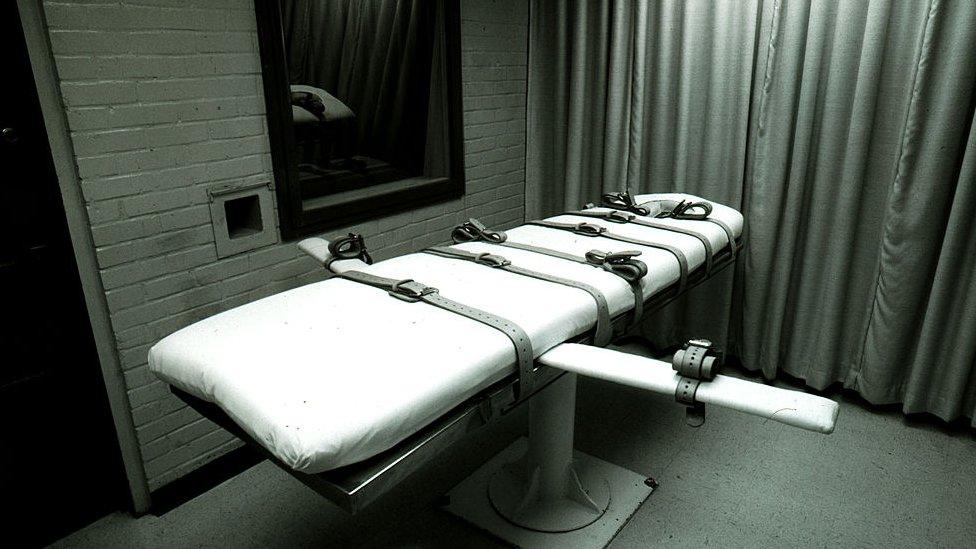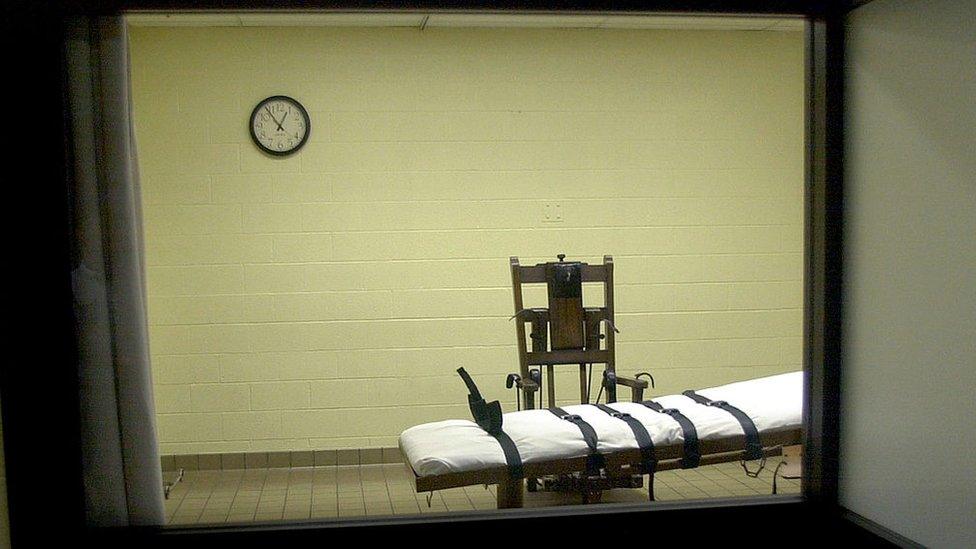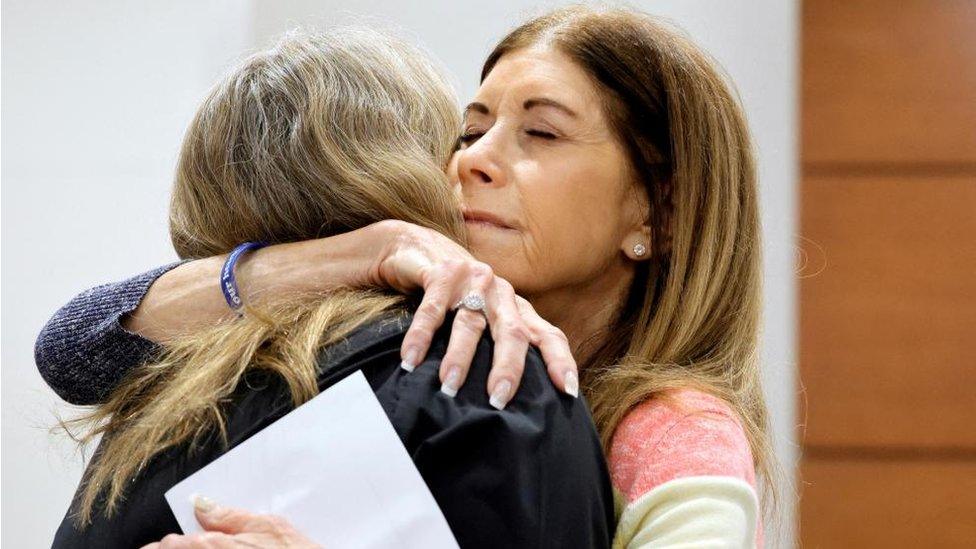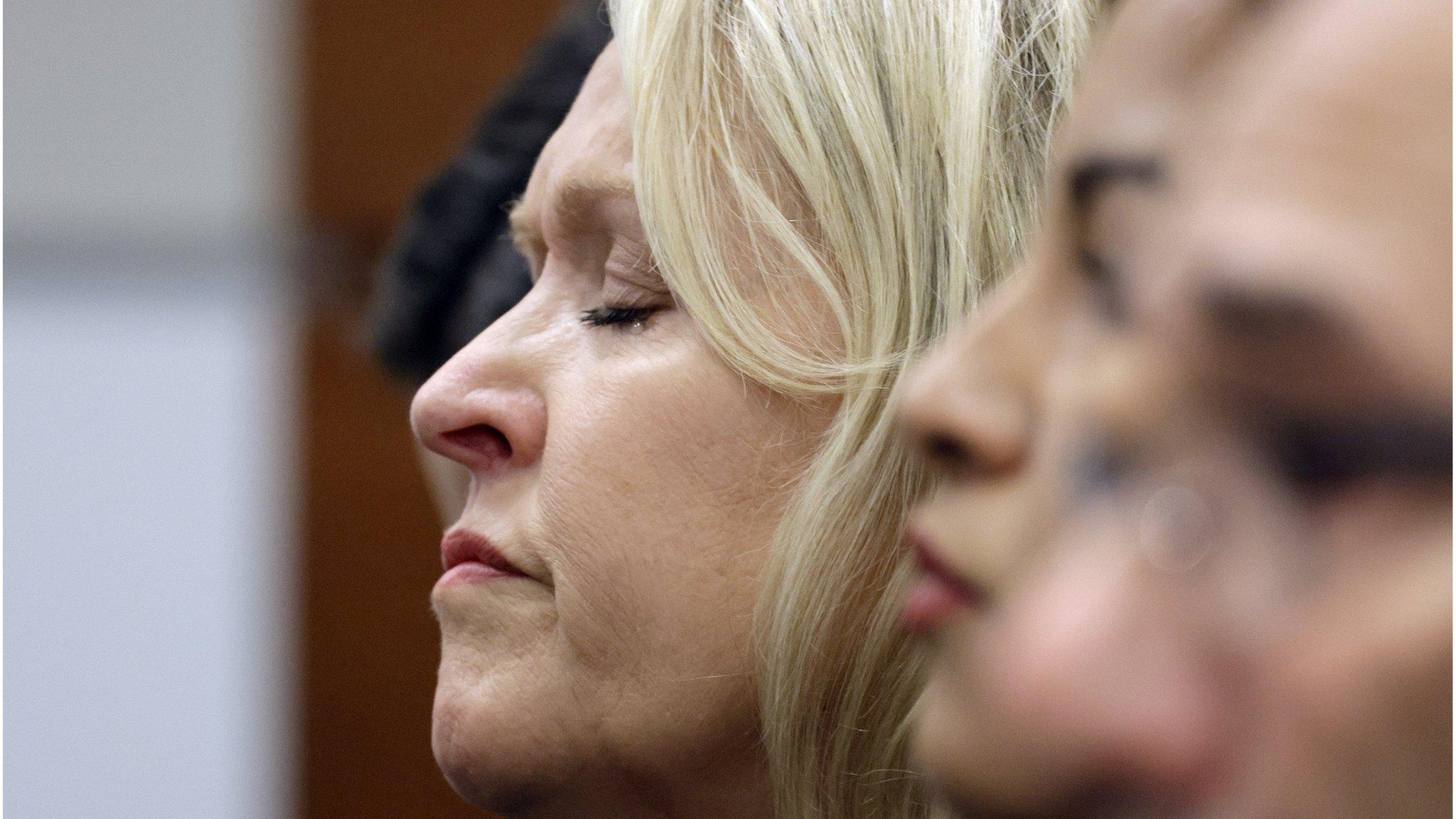A third of US executions botched in 2022 - report
- Published

Only six US states carried out executions in 2022
More than a third of executions in the US this year were botched or highly problematic, according to a new report.
The Death Penalty Information Center (DPIC) said seven of 20 execution attempts were visibly problematic or took an inordinate amount of time.
In one incident, executioners in Alabama took three hours to set an IV line in what was the longest lethal injection in US history.
A total of 18 people were executed in six states throughout the year.
That is one of the lowest figures in recent years. "All the indicators point to the continuing decline in capital punishment," Robert Dunham, executive director of the DPIC, said.
The report from the non-profit, external, which takes no position on capital punishment, said the executions were visibly problematic because of incompetence, failures to follow protocol or defects in the protocols themselves.
In four states - Idaho, Ohio, Tennessee and South Carolina - executions had to be put on hold after officials were not able to carry out execution protocols.
Michael Benza, a law professor at Case Western Reserve University who has represented death row inmates, told the BBC that the primary reason for execution failures was "using a medical model of executions, lethal injection, but not using medical people to carry it out".
"This means they often lack the training necessary to deal with problems," he said. "Also, because the people who get the death sentence often have poor medical histories, such as illness or drug use, there are technical problems with getting IVs started."
"After 40 years, the states have proven themselves unable to carry out lethal injections without the risk that it will be botched," Mr Dunham said in a statement.
"The families of victims and prisoners, other execution witnesses and corrections personnel should not be subjected to the trauma of an execution gone bad," he said.
The DPIC report shows that the death penalty continues to be geographically isolated in the US, with only six states carrying out executions. Of these, two - Texas and Oklahoma - accounted for more than half of executions.
A total of 27 US states still have the death penalty on the books, including three - California, Oregon and Pennsylvania - which have called for a moratorium on executions.
Earlier this week, Oregon Governor Kate Brown commuted the sentences of all the state's 17 death row prisoners to life in prison without the chance of parole.
In a statement, she said she was not acting because these prisoners had been rehabilitated, but because the death penalty is "immoral".
The statistics also show a racial disparity in US death penalty cases, with eight of 18 people executed being people of colour. Five were black, one was Asian, one was Native American and one was Latino.
Related topics
- Published14 December 2022

- Published2 November 2022

- Published13 October 2022
